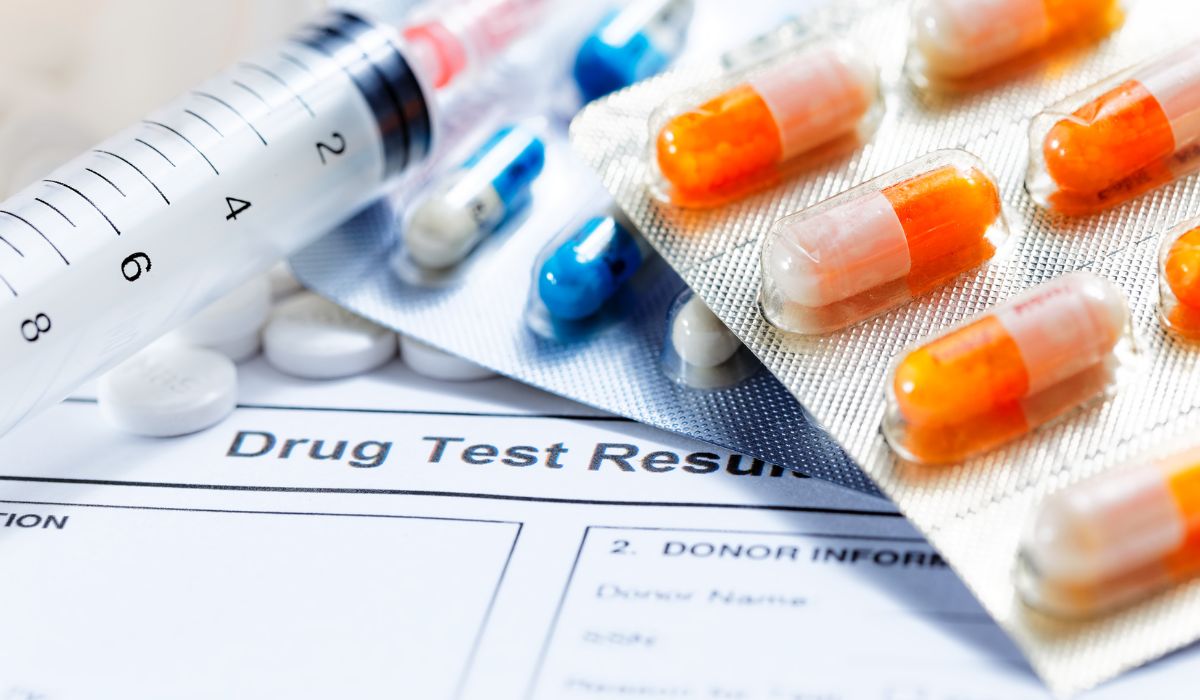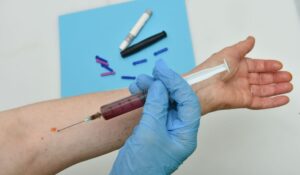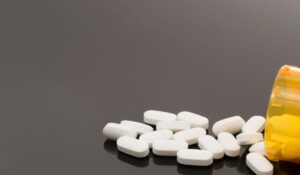Does Trazodone Show Up on a Drug Test?
If you or a loved one is taking trazodone, you might wonder: does trazodone show up on a drug test? This is a common question, especially for people in addiction recovery, detox programs, or rehab centers. It’s also important if you take medication for mental health like anxiety, insomnia, or major depressive disorder.
What Is Trazodone?
Trazodone is a type of antidepressant. Doctors often give it to help with depression, anxiety, and sleep problems. It’s also used for people with dual diagnosis, which means they have both mental health issues and substance abuse problems.
Trazodone works as a serotonin antagonist and reuptake inhibitor (SARI). This means it helps control the serotonin levels in your brain, improving mood and helping you feel better.
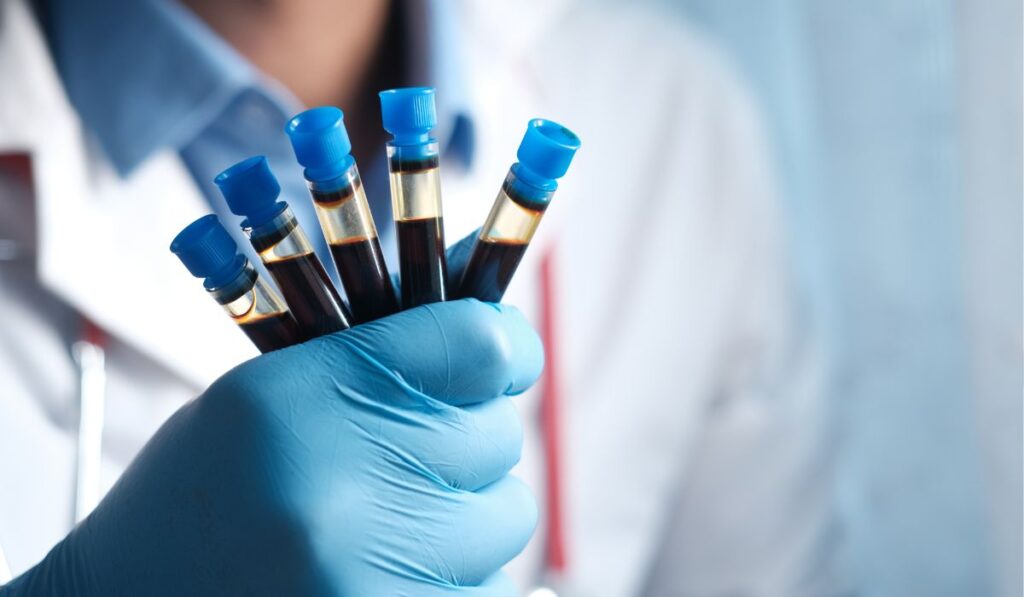
Is Trazodone a Controlled Substance?
No, trazodone is not a controlled substance. That means it’s not as tightly regulated as drugs like amphetamine, oxycodone, fentanyl, or methamphetamine. However, it can still cause side effects or interact with other medication like:
- Selective serotonin reuptake inhibitors (SSRIs) like fluoxetine, sertraline, or escitalopram
- Monoamine oxidase inhibitors (MAOIs)
- Opioids such as codeine, hydrocodone, or morphine
Will Trazodone Show Up on a Drug Test?
The short answer: usually no. Trazodone is not commonly screened for in standard urine tests or saliva testing used for drug screening.
However, in some cases, false positives can happen. That means trazodone may look like another drug—like amphetamine or benzodiazepine—on the test, even if you didn’t take those drugs.
Types of Drug Tests and Trazodone Detection
Let’s look at different testing methods and how they handle trazodone:
Urine Test
Most common at rehab centers and clinics like Lynk Diagnostics, urine tests check for drug metabolites. Trazodone is broken down in the liver and leaves the body through urine. While it won’t usually show up on a standard urinalysis, advanced toxicology tests like mass spectrometry or chromatography could detect it.
Blood Test
Blood tests are rare unless done in a hospital or for legal reasons. They show drug concentration in the blood. Trazodone might be seen here if you took a high dose recently.
Saliva Test
Saliva testing is quick and non-invasive. Trazodone can be detected for a short time, but again, it’s not normally part of routine panels.
Hair Follicle Test
Hair tests check for long-term drug use. While trazodone could leave traces in hair, most labs don’t test for it unless they’re using advanced laboratory tools.
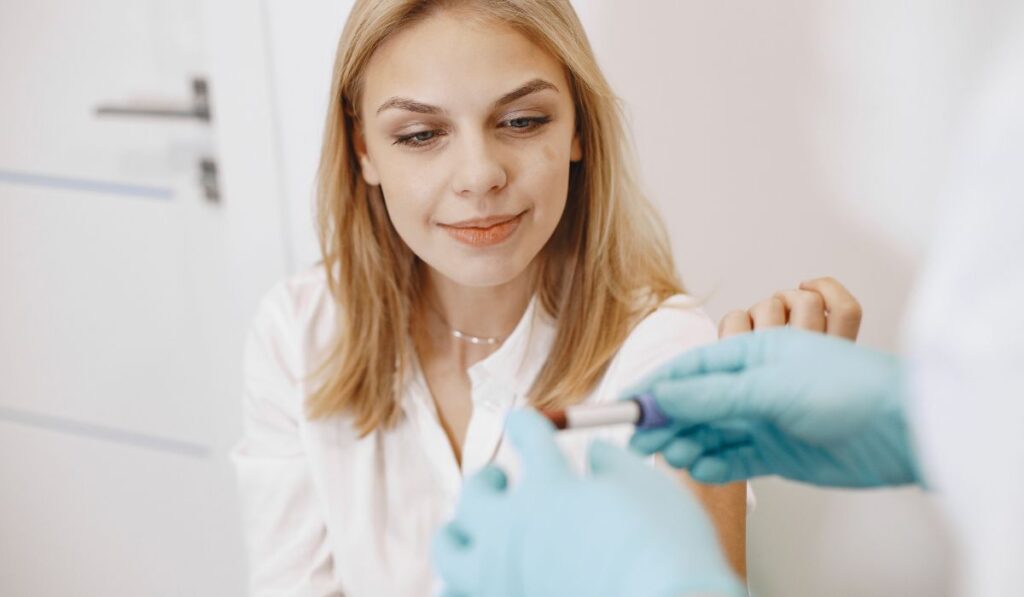
Can Trazodone Cause a False Positive?
Yes. Trazodone may mimic other substances on a drug test.
- Some people have tested false positive for amphetamines
- Others might test positive for benzodiazepines like alprazolam, clonazepam, or diazepam
This is due to how the drug is metabolized and how enzymes break it down. A test might mistake trazodone’s metabolites for something else.
What Affects Trazodone Detection?
Several factors change how long trazodone stays in your system:
- Dose (how much you take)
- Frequency (how often you take it)
- Your liver function (health of your liver)
- Other medications like ibuprofen, naproxen, or antibiotics
- Your metabolism (how fast your body breaks down drugs)
- Your overall health care and adherence to treatment
Trazodone and Other Drugs
People taking trazodone may also be using or recovering from drugs like:
- Opiates: heroin, codeine, morphine, buprenorphine, tramadol
- Stimulants: amphetamine, Adderall, methylphenidate, lisdexamfetamine
- Sedatives: quetiapine, doxylamine, diphenhydramine, depression meds
- Hallucinogens: phencyclidine, tetrahydrocannabinol (THC)
- Cough meds: dextromethorphan
People in recovery might be in a detox or relapse prevention program, and it’s important that all medicines are tracked by a physician.
What Should You Tell Your Doctor?
If you are getting tested or entering a detox program, always tell your physician or drug counselor about your medications. That includes:
- Trazodone
- Over-the-counter meds like ibuprofen
- Cold meds with pseudoephedrine
- Any antibiotics or other prescriptions
This helps prevent false positives and protects your care plan.
Can Rehab Facilities Like Lynk Diagnostics Detect Trazodone?
Yes, if needed. While most tests won’t screen for trazodone, Lynk Diagnostics can use advanced methods like:
- Mass spectrometry
- Chromatography
- Hair testing
- Liver function tests
- Specialized toxicology panels
These are often used in psychiatry, dual diagnosis programs, and addiction recovery clinics.
How Long Does Trazodone Stay in Your Body?
- Urine: 1–3 days
- Blood: Up to 24 hours
- Saliva: A few hours to 1 day
- Hair: Up to 90 days
This can vary by metabolism, dose, and liver health.
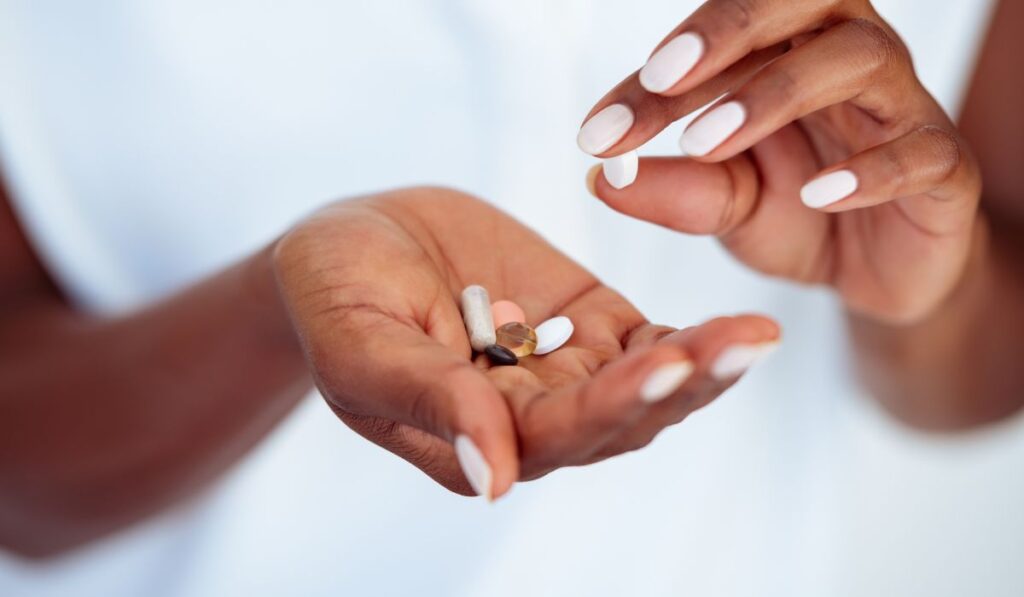
FAQs
Does trazodone show up on a 10-panel drug test?
No, trazodone is not part of a standard 10-panel drug test. However, some labs might detect it with special tools.
Can trazodone be mistaken for other drugs on a test?
Yes, it can lead to false positives for amphetamines or benzodiazepines depending on the test method.
How can I make sure my drug test is accurate?
Tell your physician or the lab about all your medications, including trazodone, over-the-counter drugs, and supplements.
Is trazodone safe to take during rehab?
Yes, but only under the care of a health care provider. It can help with sleep and mood, but should be used with medical guidance.
Will trazodone interact with other antidepressants?
Yes, it may interact with other drugs like venlafaxine, bupropion, fluoxetine, or tricyclic antidepressants, which can increase risk of side effects.
Final Thoughts
So, does trazodone show up on a drug test? Not usually—but it can, especially if the test is detailed or if false positives happen. If you’re in a detox program or dealing with substance abuse, always be open with your care team.
Lynk Diagnostics is here to support accurate, respectful, and advanced drug screening for those on the path to healing.

